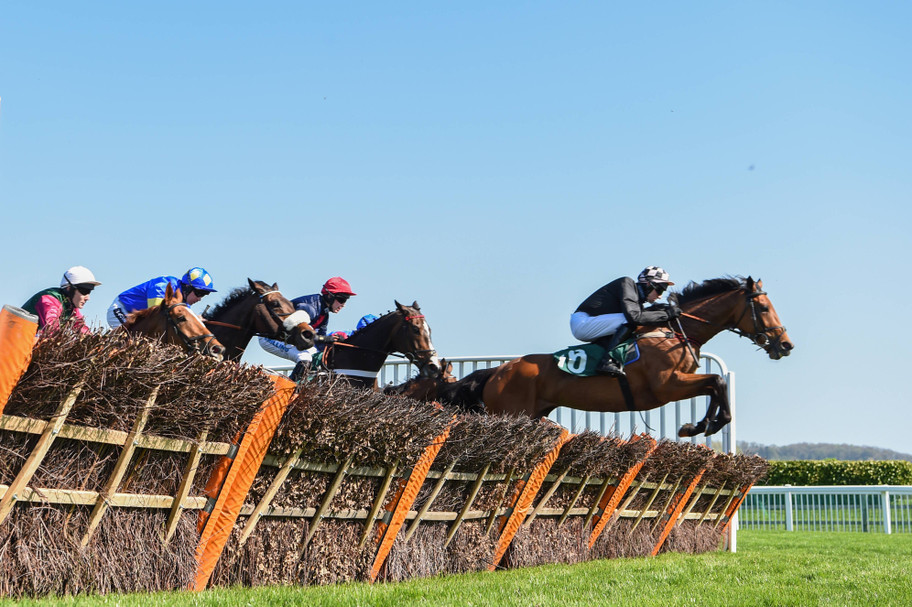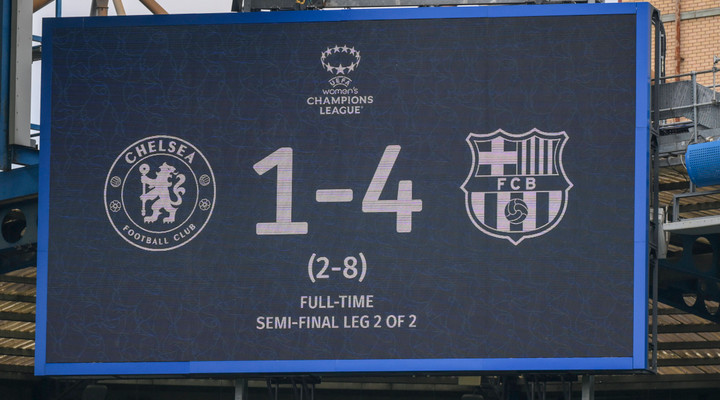- Different types of horse racing bets
- Horse racing odds
- Most popular horse racing events to bet on
- Horse racing bets online
- Tips/strategy for horse racing betting
- NAP betting
- Ante-post betting
- Key horse racing betting terms
- Making the most of bonuses and promotions
- The history of horse betting in the UK
- Responsible gambling with FIRST
- FAQs
How to bet on horse racing online

IMAGO
Horse racing is perhaps the sport that offers punters the greatest number of betting opportunities, especially in the UK. On British shores, the racing rarely stops, with multiple race meetings taking place each and every day, barring a few exceptions, such as Christmas Day.
Given that there’s so much horse racing, it’s hardly surprising that it’s one of the most popular sports among UK gamblers. In fact, at the time of writing, only football outranks horse racing in terms of popularity in the UK.
If you’re new to horse racing, you’ve landed on the right page. In this ‘how to bet on horse racing’ guide, we’ll be going over the basics plus looking at aspects such as how to bet on horse racing online. By the time you're done read this, you'll be ready to find one of the best horse racing betting sites and place your first bet with confidence.
Different types of horse racing bets
Most commonly, people bet on horses to win, though there are several other forms of horse racing bets. Let’s look at these below.
To Win
Nice and easy, betting on a horse to win means that you’re betting on a horse to cross the finish line before all other runners.
Each Way
Right, so what does each way mean in horse racing betting? An each-way bet is two bets rolled into one. One bet is on the horse to win, the other is on the horse to place.
For example, if you have £10 each way on a horse, you’re betting £10 on the horse to win the race and £10 on the horse to finish in one of the places.
Typically, three places are offered to each-way bettors, though for big-field races, four, five and even six places are not uncommon.
To Place
To bet on a horse to place means to bet on the horse to finish in one of the places defined by the bookmaker, typically three (but can be more). It doesn’t matter whether your horse finishes first, second or third.
Double
A double is one bet on two horses to win two different races, increasing the potential payout. Both horses need to win for the bet to be successful.
Accumulator
Many punters may ask how to bet on horse racing accumulators? An accumulator bet - or acca - is a single bet on three or more horses all to win their respective races, thus increasing the potential payout. Every horse included in the accumulator must win for the bet to be successful.
Forecast
A forecast bet involves selecting which horses will finish first and second in a particular race. A straight forecast involves selecting the precise order, while a reverse forecast allows the two horses to fill the first two places in any order.
Lucky 15
Perhaps the most common of the more exotic racing bet types, a Lucky 15 bet allows bettors to roll 15 bets on four different races into one multiple. Lucky 15’s are made up of four singles, six doubles, four trebles and one four-fold accumulator. At least one horse must win to gain a partial return.
Yankee
A yankee bet is a multiple bet that consists of 11 bets on selections in four different events - consisting of four doubles, four trebles and an accumulator. At least two of the four horses selected must win to gain a partial return. All four horses must win to gain a full payout.
Tips: Sandown Park Eclipse weekend betting preview
Horse racing odds
Understanding odds is a key part of betting. Horse racing odds simply reflect each horses’ winning probability according to the bookmaker. Whether you’re looking at fractional odds or decimal odds, you’re looking at a reflection of the perceived probability of an outcome.
In the UK, fractional odds dominate the world of horse betting, though decimal odds are also used, especially by betting exchanges. See below for information on how to read and understand both formats, or check out our full guide to how sports odds work.
Fractional
If you’re betting on horses with any UK bookmaker, you’ll use fractional odds. Fractional odds are fairly easy to read and understand.
It’s important to know that the number on the right of the fraction represents the state, while the number on the left of the fraction represents the potential profit.
If you have fractional odds of 8/1, for every £1 staked, you get £8 profit. If the odds are 12/1, for every £1 staked, you receive £12 in profit. Simple, right?
Decimal
Decimal odds, though the norm on betting exchanges such as Betfair, are far less common in the UK. Though most online bookmakers let you switch to decimal odds via the homepage if that’s what you prefer.
Like fractional odds, decimal odds aren’t too complex. Potential returns can always be calculated by multiplying your stake by the decimal odds displayed. For example, if the decimal odds are 2.50 and you want to stake £10, multiply 10 by 2.5, resulting in a return of £25.
Read: Ted's Treble horse racing tips
Most popular horse racing events to bet on
In the UK, there is horse racing just about every day, meaning that there are thousands of meetings during the course of a calendar year, though in terms of prestige and popularity, a few meetings stand well above the rest. These are:
Cheltenham Festival
Seen by many as the pinnacle of the sport, the Cheltenham Festival is a four-day meeting, taking place each year in early March. It contains some of the most competitive jumps racing of the season. The Cheltenham Festival is easily the most popular jumps meeting from a betting point of view.
Grand National Festival
After Cheltenham, the Grand National Festival, which takes place at Aintree Racecourse, is the most important jumps meeting of the year. The flagship race is the Grand National itself, which in terms of sheer betting volume has long been the most popular race in Britain.
Guineas Festival
Containing the 1000 and 2000 Guineas races, which are highly prestigious races, the Guineas meeting at Newmarket is the first major flat meeting of the season and thus draws quite chunky betting interest.
Epsom Derby
Following the Guineas, we have the Derby meeting at Epsom, which houses the Epsom Derby and the Epsom Oaks, two of the most high-profile flat races of the year. These races are also hugely popular in a betting sense.
Royal Ascot
Easily the most prestigious and most popular flat meeting of the season, Royal Ascot is a five-day racing bonanza that takes place at Ascot Racecourse. In terms of betting volume, it is the biggest flat meeting of the year, as we cover in our Royal Ascot preview.
Horse racing bets online
While there are still many betting shops in the UK, the majority of horse racing betting action now happens online with several horse racing odds and tips sites.
If you’re new to either betting on horse racing or betting in general, you may be thinking how can I bet on horse racing?
You may also be wondering how to set up an online account. Fear not, we’ve got you covered on both counts. Just follow the simple guide below.
Guide to setting up an account for placing horse racing bets
- Click on any of the links to horse racing betting sites displayed on this page, which will instantly redirect you to the registration page.
- Follow the steps on the registration page and input the requested information, such as name, date of birth, email address.
- Once you’ve registered, deposit using your chosen method, and don’t forget to check any bonus requirements, ensuring that you deposit enough to unlock any welcome offer.
- Having registered and deposited, to place horse racing bets, navigate to the horse racing section displayed on the main sports menu of any online bookmaker, usually found either on the left or at the top of the homepage.
- From the horse racing section, find the race that you want to bet on, and add your chosen horse to your betting slip by clicking on the odds displayed for that runner.
- In the betslip, enter your stake, double check that everything looks OK and place your bet.
Horse racing tips: Debenhams July Festival betting guide
Tips/strategy for horse racing betting
OK, so how to bet on horse racing? Well, sadly, there’s no quick fix when it comes to horse racing. There’s no one-size-fits-all strategy, no magic formula that turns someone into a winning bettor.
Betting on horse racing can be complex. It requires lots of effort, lots of discipline and even then, winning is tough. Few people make a success of betting on horses, though there are a few things to keep in mind if you want to stand a chance of becoming profitable in the long run.
As well as the strategic steps we cover below, you should make sure you're up to date with the latest horse racing tips from FIRST's team of tipsters.
Understand value and look for it instead of predicting winners
To improve as a horse racing bettor, it is key to understand value. Bettors should make it their goal to search for value and how to exploit it instead of looking to predict the outcomes of races. Our full guide to value betting explains everything you need to know.
Understand that betting on horses is more volatile than other sports betting
It’s important to understand that betting on horses is not like betting on tennis or football where there are far fewer potential outcomes.
Betting on horses is much more volatile. In other words, you can place many horse racing bets and go through long periods without a winner.
Play the long game
Patience and discipline are key. If you want to stand any chance of being a successful horse racing bettor, then you need to focus on the long term.
Short-term results rely heavily on variance, so it’s all about the long-term picture. Don’t overreact to short-term results by deviating too much from your typical staking plan.
Make your own odds
As well as making sure you fully understand how sports betting odds work, it's a good idea to learn how to form your own odds for a horse race. Learn how to price a race to 100%, before comparing your own odds to those on offer.
Forming your own odds can help to identify when value may be on offer.
NAP betting
If you’re new to betting on horse racing, then you may be confused by some of the terminology. High on the list of commonly used phrases in the world of horse betting is ‘NAP’, which is slang for ‘best bet’.
In other words, if you see that a particular horse is described as somebody’s ‘NAP’, then you know that they’re talking about their best bet of the day. However, this can have two meanings.
Firstly, many people use ‘NAP’ to refer to the bet that they think is most likely to win.
Other people use ‘NAP’ to describe the bet that offers the most value for money in their eyes, which is a bet that they see as being offered at considerably bigger odds than they believe the true odds to be.
In the UK, platforms such as the Racing Post, which for those who don’t know, is a daily print and digital publication dedicated to horse racing and betting, and many racing websites publish daily ‘NAPs’ from a variety of racing journalists, writers and betting experts.
Ante-post betting
Ante-post betting involves betting on future events, much like betting on the winner of the Champions League or Premier League months in advance.
In horse racing, ante-post bets are popular ahead of the big meetings, such as the Cheltenham Festival, Royal Ascot and the Grand National.
The crux of ante-post betting is that by betting earlier, punters can get much bigger odds, but they run the risk of their horse not running due to a multitude of reasons that cannot be known so far in advance.
Key horse racing betting terms
To be honest, it’s not just the above. The world of horse betting is awash with terminology that may be confusing. See the table below to get a better idea of what key horse racing betting terms mean.
| Betting term | Explanation |
| Best Odds Guaranteed (BOG) | An industry wide promotion whereby bettors take odds on a horse. If the horse drifts in the betting and wins at larger odds, the punter gets the extra returns. |
| Favourite (FAV) | The horse with the shortest odds. Also known as the ‘market leader’. |
| Exchange | A betting exchange facilitates person-to-person betting instead of person-to-bookmaker betting. |
| Banker | A banker is considered to be a bet that “cannot” lose. |
| Co-favourite | A horse that shares favouritism/market supremacy with one or more horses. |
| Drifter | If a horse moves negatively in the market, becoming available at bigger odds, then it is referred to as a ‘drifter'. |
| Hedging | Hedging refers to the practice of wager against your original bet to either secure a profit or minimise losses. |
| Place | If a horse finishes inside a certain number of places determined by the bookie. Commonly three places, but can be greater depending on the number of runners. |
| Jolly | Typically another word for the favourite, often used to describe particularly strong favourites. |
| Longshot | A horse available at sizable odds, also known as ‘an outsider’. |
| Market mover | A market mover is a horse whose odds have changed significantly since the betting opened. |
| Odds-on | An ‘odds-on’ bet is a bet where the potential profit is smaller than the stake. |
| Odds-against | An ‘odds-against’ bet is where the potential profit is greater than the amount staked. |
| Non-runner | Non-runners are horses declared to run but are pulled out before the race begins. Bets on non-runners are refunded in full. |
| Steamer | The opposite of a ‘drifter’, a steamer is a horse that has been heavily supported in the market, causing the odds to shorten dramatically. |
| Void bet | A void bet is a bet that has been deemed as invalid by the bookmaker. For example if a horse is a non-runner. |
| Quinella | A bet in which the first two places in a race must be predicted, but not necessarily in the correct order. |
| Exacta | Unlike a quinella, where the order doesn’t matter, an exacta bet in horse racing is a wager placed on the correct order of the top two horses to finish. |
| Roving banker | Select a runner as your best bet ‘roving banker’ and then pick other runners to fill the remaining places. To win, the ‘roving banker’ must place and at least one of your other selected runners must fill any of the remaining places. |
| Swinger | To win a swinger bet you must select a minimum of two horses in a particular race with these selections finishing in any order within the top three places. |
| Pick 6 | To win a pick 6 bet, it requires bettors to select the winners of six consecutive races, typically all from one race meet. Due to the complexity of this bet, it commonly pays out very high figures. |
Making the most of bonuses and promotions
Bookmakers will hand out welcome bonuses if you create an account and they can range from free bets to money back on all losing opening bets.
There will also be promotions on different horse racing meetings. Certain bookmakers will offer more places on each-way bets, while there could be offers that earn free bets on the big race meets of the year to lure in new customers like Cheltenham Festival or the Grand National.
The history of horse betting in the UK
Horse racing has long been popular in the UK, arguably dating back to Roman times, before becoming a big part of British culture in the 1700’s, particularly among the upper classes.
Often referred to as the ‘sport of kings’, horse racing grew rapidly during the mid to late 1700’s, with the Jockey Club, an organisation that continues to shape much of the sport today, being founded in 1750.
Throughout both the 1800’s and 1900’s, the sport of horse racing grew continually, with more and more racecourses sprouting up around the country, and with this growth came increased betting interest.
Up until 1961, betting on horse racing was illegal apart from at the track, though this didn’t exactly stop many running black-market operations.
In the same year, betting shops opened their doors, promoting a sharp rise in the number of the general public interested in betting on horses.
Between 1961 and the 1990’s the number of betting shops in Britain steadily grew, while horse racing became the most popular sport amongst UK bettors.
During the 2000’s and into the 2010’s, thanks largely to the rise of internet betting and the widespread promotion of football betting, horse racing dropped into second place, but it remains hugely popular, continuing to hold position as the second-most bet on sport amongst UK customers.
Responsible gambling with FIRST
You must be 18+ to gamble. Gambling is a form of entertainment, not a way to make money. Our tips and advice help you enjoy gambling, but there is always a chance a bet or casino game can lose.
Never bet more than you can afford to lose. Stop betting if you are angry, emotional or under the influence of alcohol.
Warning signs of problem gambling: chasing losses, betting money needed for bills, or feeling unable to stop.
Need help? Visit our responsible sports betting page or our responsible casino gambling page, or contact the support organisations listed below if you're struggling to control your gambling:
National Gambling Support Network
FAQs
Is horse racing betting legal in the UK?
It is currently legal to bet on horse racing in the United Kingdom as long as you bet with a licensed operator and are at least 18 years of age.
What happens if I bet on a horse and it doesn’t run?
If you bet on a horse that doesn’t end up running in a race, your stake is typically refunded. Horses that don’t run are typically referred to as ‘non runners’.
Can I watch horse racing online?
Yes, you can watch horse racing online. Most online bookmakers available to UK players let users watch all UK and Irish horse races as long as they either have a funded account or have placed a bet on the race.
What does Rule 4 mean in horse racing?
A ‘Rule 4’ in horse racing is a deduction applied to winning bets in races where horses have dropped out, thus changing the odds of the other runners.
In other words, this is a tried and trusted method of re-calculating the odds of bets that have already been placed when there are significant non-runners.






 Short-priced value picks: Are they worth it?
Short-priced value picks: Are they worth it?
 What is value betting? A comprehensive guide
What is value betting? A comprehensive guide
 What does BTTS mean in betting?
What does BTTS mean in betting?
